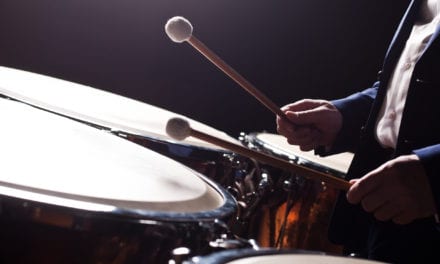By Craig Kirchhoff
“The future of music may not be with music itself, but rather…in the way it makes itself a part of the finer things humanity does and dreams of.”
– Charles Ives
Every year that we teach and conduct we are challenged by the inevitable process of making decisions about the repertoire that we will share and explore with our students. The process is a daunting one because it challenges us to re-examine our values and our depth as music educators and musicians. Selecting repertoire is not about choosing pieces to play; selecting repertoire is about defining a curriculum and our beliefs about what music education should be for our students. Selecting repertoire is also about commitment, exposure, and risk: commitment, because the music that we rehearse and perform defines our values; exposure, because we share this repertoire with our students and eventually with an audience; and risk, because the music we select may not always resonate with what students, parents, and administrators believe to be the purpose of a band program in an academic setting.
The Value System Behind Our Actions
Nearly twenty years ago composer Warren Benson asked an important rhetorical question at an international conference of conductors and teachers: “What was it that brought us to music in the first place?”
Warren’s answer has profound implications for our role as music educators.
“It is something in humankind that we find since the beginning of time that compels us to put an engraving on the handle of a knife, a design on the blade of an oar, or a configuration on the exterior of a ceramic pot. It requires that we sing to be born, sing to die, sing to plant, sing to be together, and sing to be alone.”
What Warren was describing is the creative and artistic spirit that is an inherent part of our nature; it is a part of the business of being human. The purpose of music education, therefore, should be to stimulate, nurture, and enhance the creativity, the imagination, and the expressive spirit of our students, qualities that have been a part of their being long before they entered our rehearsal halls or classrooms. Our goal should be to nurture a life-long love affair with music and with the creative process. To accomplish this goal we have to become evangelists for three essential beliefs that should guide our performance curriculum:
- The process of teaching and exploring music is more important than producing concerts or participating in contests and festivals.
- The educational outcomes for our students must be emphasized over the residual entertainment value that is often a high priority of administrators and parents.
- The long-term value of music education in the lives of our students is more important than the short-term rewards.
In addition, we have to diligently remind ourselves, and others, that the quality of our student’s music education is directly related to the quality of the curriculum they study and perform.


